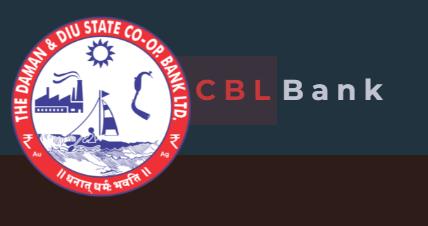

Table of Contents
- Definition and Characteristics
- Scheduled Banks vs. Non-Scheduled Banks
- Differences Between Scheduled and Non-Scheduled Banks:
- What is a Non-Scheduled State Co-operative Bank?
- List of Non -Schedule State-Cooperative Banks in India
- Non-Scheduled Urban Cooperative Banks in India
- List of Non-Scheduled Urban Cooperative Banks in India
- Faq's
Non-scheduled banks play a significant role in the Indian banking sector alongside scheduled banks. These banks, although not listed in the Second Schedule of the Reserve Bank of India Act, 1934, contribute to the financial ecosystem of the country. Understanding the nuances of non-scheduled banks is crucial for a comprehensive view of the banking landscape of the country.
Definition and Characteristics
Non-scheduled banks are banking institutions that do not meet the criteria to be listed in the Second Schedule of the RBI Act, 1934. They operate under specific guidelines set by the RBI but do not conform to all parameters outlined for scheduled banks. These banks typically have a reserve capital of less than Rs. 5 lakh and are subject to additional financial constraints compared to scheduled banks.
Scheduled Banks vs. Non-Scheduled Banks
Scheduled Banks:
A scheduled bank, as per the Reserve Bank of India Act, 1934, refers to any bank listed in the 2nd schedule of RBI Act, meeting specific criteria outlined in clause 42. These banks include the State Bank of India and its subsidiaries, nationalised banks, regional rural banks, foreign banks, and certain cooperative banks, alongside old and new private sector banks like Karur Vysya Bank and HDFC Bank Ltd.
For a bank to qualify as scheduled, its paid-up capital and collected funds must be at least Rs 5 lakh. Scheduled banks also enjoy privileges such as access to loans from the Reserve Bank of India at the bank rate and membership to clearinghouses.
Non-Scheduled Banks:
On the other hand, non-scheduled banks are financial institutions that are not included in the Second Schedule of the RBI Act, 1934. These banks do not possess the same privileges as scheduled banks and are not entitled to certain benefits such as access to central bank credit. Non-scheduled banks still operate under the purview of the RBI but may face additional regulatory constraints compared to their scheduled counterparts. Banks with a reserve capital of less than 5 lakh rupees qualify as non-scheduled banks. Unlike scheduled banks, they are not entitled to borrow from the RBI for normal banking purposes, except, in an emergency or abnormal circumstances. Also, non-schedule banks do not have to maintain the Cash Reserve Ratio (CRR) or Statutory Liquid Ratio (SLR) unlike scheduled banks.
Differences Between Scheduled and Non-Scheduled Banks:
Feature | Scheduled Banks | Non-Scheduled Banks |
Privileges and Access to Central Bank Credit | Have access to central bank credit facilities. | Do not have access to central bank credit facilities. |
Clearing Facilities | Eligible to participate in RBI-operated clearinghouses. | May not have direct access to clearing facilities. |
Deposit Insurance | Benefit from deposit insurance provided by agencies like DICGC. | May not have the same level of deposit insurance coverage. |
Regulatory Oversight | Subject to stringent regulatory requirements. | Regulated by the RBI but may face less stringent regulations. |
Functions and Operations | Provide a wide range of banking services. | Offer essential banking services but cater to specific segments. |
Importance in the Banking Sector | Play a significant role in the banking system. | Contribute to financial inclusion by diversifying banking services. |
What is a Non-Scheduled State Co-operative Bank?
A Non-Scheduled State Co-operative Bank refers to a cooperative bank that operates within a specific state or union territory of India and is not included in the Second Schedule of the Reserve Bank of India (RBI) Act, 1934. The Second Schedule of the RBI Act lists banks that are considered scheduled banks, which enjoy certain privileges such as access to central bank credit, deposit insurance, and participation in clearinghouses.
Non-scheduled state cooperative banks, on the other hand, do not possess these privileges. However, they still play a crucial role in providing financial services to their respective regions, including extending credit facilities to agriculture, small businesses, rural development initiatives, and other sectors. These cooperative banks operate based on cooperative principles, with a focus on meeting the financial needs of their members and promoting socio-economic development at the grassroots level.
Despite not being classified as scheduled banks, non-scheduled state cooperative banks are regulated by the Reserve Bank of India (RBI) and are subject to its guidelines and regulations. They play an essential role in promoting financial inclusion and rural development, particularly in areas where mainstream banking services may be limited or inaccessible.
Also Read: List of Payments Bank and Small Finance Banks in India - 2024
List of Non -Schedule State-Cooperative Banks in India
The Andaman and Nicobar State Co-operative Bank Ltd:
The bank has been established to cater to the financial needs of the Andaman and Nicobar Islands. This non-schedule state-cooperative bank provides a range of banking services to the residents of the remote and ecologically diverse islands of Andaman and Nicobar and plays a vital role in facilitating economic activities and promoting financial inclusion in the region.
Official Website: https://www.anscbank.in/

The Arunachal Pradesh State Co-operative Apex Bank Ltd.
Serving the state of Arunachal Pradesh, this apex cooperative bank focuses on extending credit facilities to various sectors, including agriculture, small businesses, and rural development initiatives. It plays a significant role in supporting the socio-economic advancement of the tribal communities and promoting rural entrepreneurship in the region.
Official website: https://www.arunachalapexbank.com/

The Assam Co-operative Apex Bank Ltd.
As the apex cooperative bank in Assam, this institution plays a pivotal role in channeling credit to agriculture, allied sectors, and small-scale industries. It serves as a crucial financial intermediary in facilitating the growth of rural and semi-urban areas, thereby contributing to the overall development of the state.
Official Website: https://www.apexbankassam.com/index.php

The Chandigarh State Co-operative Bank Ltd
Catering to the banking needs of Chandigarh, this cooperative bank provides a range of financial services to residents, businesses, and institutions in the union territory. It plays a vital role in promoting cooperative banking principles and fostering financial stability in the region.
Official Website: https://cscbapex.com/

The Jammu and Kashmir State Co-operative Bank Ltd
Operating in the union territory of Jammu and Kashmir, this cooperative bank extends credit facilities to various sectors, including agriculture, horticulture, handicrafts, and small-scale industries. It plays a crucial role in supporting the socio-economic development of the region and promoting financial inclusion among its diverse population.
Official website: https://www.jkbank.com/

Jharkhand State Cooperative Bank Ltd
Serving the state of Jharkhand, this cooperative bank focuses on providing financial assistance to agriculture, rural development, and small-scale industries. It plays a significant role in facilitating credit flow to rural areas and empowering local communities through financial inclusion initiatives.
Official website: https://jscb.gov.in/

The Manipur State Co-operative Bank Ltd
With a focus on serving the financial needs of Manipur, this cooperative bank extends credit facilities to various sectors, including agriculture, horticulture, and small-scale industries. It plays a vital role in promoting rural development and empowering local communities through inclusive banking services.
Official Website: https://mscbmanipur.in/

The Mizoram Co-operative Apex Bank Ltd
As the apex cooperative bank in Mizoram, this institution plays a crucial role in providing financial assistance to agriculture, allied sectors, and small-scale industries. It contributes to the economic development of Mizoram by facilitating credit flow to rural and semi-urban areas and promoting entrepreneurship among local communities.
Official Website: https://mizoapex.com/

The Nagaland State Co-operative Bank Ltd
Serving the state of Nagaland, this cooperative bank focuses on extending credit facilities to agriculture, small businesses, and rural development initiatives. It plays a significant role in promoting financial inclusion and empowering local communities through accessible banking services.
Official website: https://nscb.co.in/

The Daman and Diu State Co-operative Bank Ltd
Catering to the financial needs of the union territories of Daman and Diu, this cooperative bank provides a range of banking services to residents, businesses, and institutions in the region. It contributes to the economic growth of Daman and Diu by facilitating access to finance and promoting cooperative banking principles.
Official website: https://3dcoopbank.in/

Also Read: List of Scheduled Banks in India Under RBI
Non-Scheduled Urban Cooperative Banks in India
Non-scheduled urban cooperative banks are cooperative banks that operate in urban areas of India and are not included in the Second Schedule of the Reserve Bank of India (RBI) Act, 1934. These banks are distinct from scheduled urban cooperative banks, which are included in the Second Schedule of the RBI Act and enjoy certain privileges such as access to central bank credit, deposit insurance, and participation in clearinghouses.
Non-scheduled urban cooperative banks typically serve the financial needs of urban areas, including providing banking services to residents, small businesses, traders, and other entities operating in urban centers. They function based on cooperative principles, with a focus on meeting the financial requirements of their members and promoting community-based banking services.
Although non-scheduled urban cooperative banks do not possess the privileges associated with scheduled banks, they still play an essential role in the banking sector, particularly in promoting financial inclusion and catering to the banking needs of urban populations. These banks are regulated by the Reserve Bank of India (RBI) and are subject to its guidelines and regulations to ensure their stability and soundness.
Also Read: The Complete List of National Banks in India-2024
List of Non-Scheduled Urban Cooperative Banks in India
Under the RBI, there are over 1400 Non-Scheduled Urban Cooperative Banks in India.
Find the list here: https://rbidocs.rbi.org.in/rdocs/Content/pdfs/nonschedulecoop.pdf
In conclusion, non-scheduled banks form an integral part of the banking sector in India by complementing the services offered by scheduled banks. While they may operate under certain constraints, these institutions play a vital role in promoting financial inclusivity and catering to niche banking requirements within the diverse economic landscape of the country
explore further
Latest from Editorials
More from Publications
Resources
Dwello, for every home buyer, is a way to go from 'I feel' to 'I know', at no extra cost.


